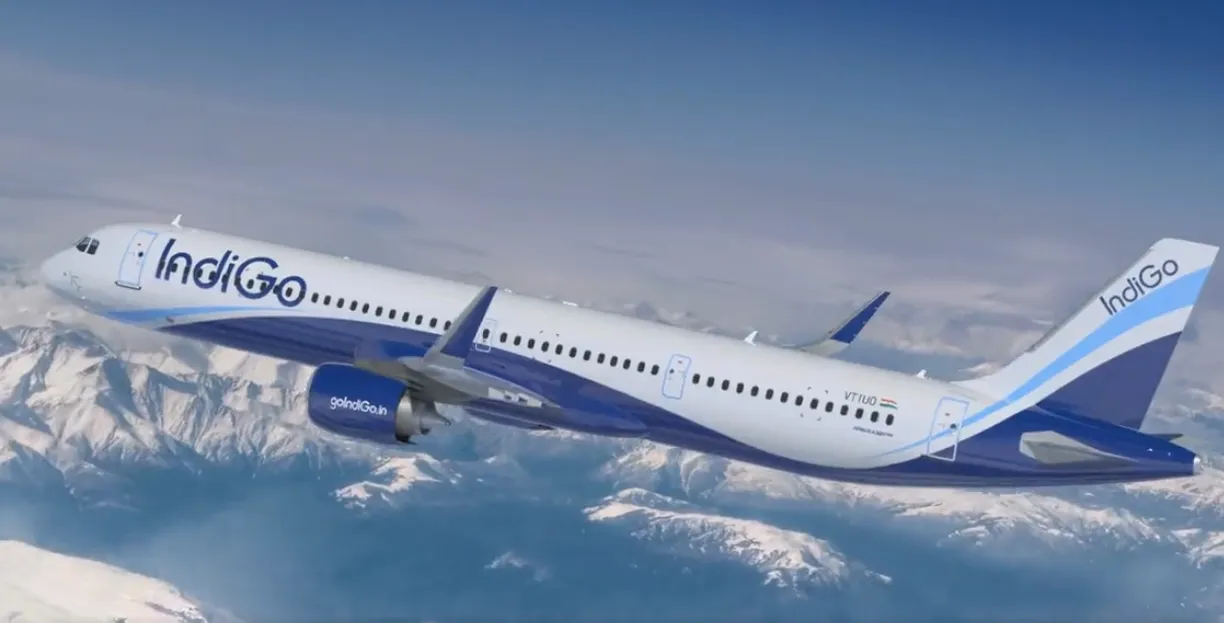IndiGo, the largest airline in India, has reported an unexpected loss of Rs 987 crore for the September quarter, marking its first quarterly deficit in two years. The loss, attributed to soaring fuel expenses and increasing aircraft rentals, comes as a shock to a company that once enjoyed a solid profit of Rs 189 crore during the same period last year.
The airline, which controls a staggering 63% of domestic passenger traffic, had anticipated a net profit of Rs 134 crore according to Bloomberg estimates. However, fuel expenses, which constitute more than one-third of total costs, surged by 13% year-on-year. Additionally, supplementary rentals and maintenance costs escalated by 30%, further straining financial performance. Despite consolidated revenue from operations increasing by 14% to Rs 16,970 crore, this figure fell short of the expected Rs 17,254 crore. Earnings before interest, tax, depreciation, amortisation, and rentals (Ebitdar) showed a slight decline of 1%, and the Ebitdar margin dropped by 210 basis points to 14.3%. In a post-results call, CEO Pieter Elbers noted that the seasonal trends and the grounding of a significant portion of the fleet contributed to the loss. At the close of the quarter, IndiGo’s fleet strength stood at 410 aircraft, reflecting a 7% increase compared to the previous quarter. However, the company did not specify the exact number of grounded planes, acknowledging it was in the mid-70s range.
Elbers stated, “If not for the groundings, our financial performance would have aligned with seasonal expectations. We are beginning to see a reduction in the number of grounded aircraft.” CFO Gaurav Negi confirmed that the number of grounded planes has decreased to the high-60s and is expected to drop below 60 by the end of calendar year 2025. Despite the current challenges, IndiGo remains optimistic about the future. The airline anticipates a rebound in passenger traffic in the seasonally robust third quarter and plans to expand its international footprint by adding three new destinations, bringing the total to 40. Furthermore, IndiGo has enhanced its cash reserves by 28% year-on-year, totalling Rs 39,341 crore, although total debt has increased by 20% to Rs 59,237 crore, including lease liabilities. The board has also approved an investment of up to Rs 295 crore in the IndiGo Ventures Fund, targeting investments in aviation-related startups.
Public sentiment towards IndiGo’s loss reflects a mix of concern and understanding. Many passengers and industry stakeholders recognise that rising operational costs are a challenge not just for IndiGo, but for the entire aviation sector. With sustainability becoming a critical consideration in aviation, stakeholders are hopeful that IndiGo’s investments in new technologies and sustainable practices will help mitigate future risks while enhancing operational efficiency.
In summary, IndiGo’s unexpected quarterly loss highlights the volatility of the aviation sector amidst rising costs. As the airline navigates these challenges, its focus on expanding routes and investing in innovation could pave the way for a recovery that not only benefits its bottom line but also contributes positively to the industry and the environment.


